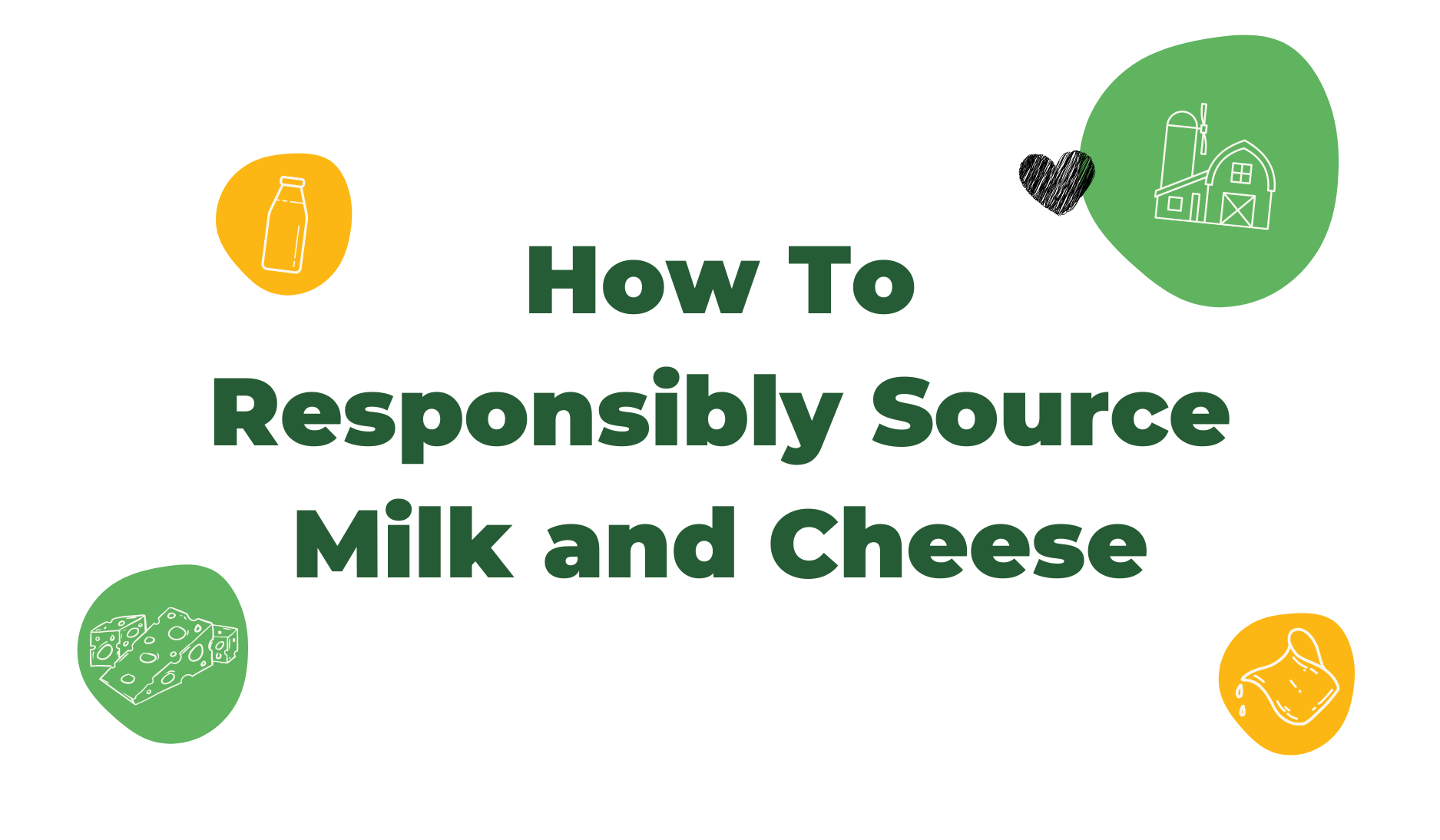
How To Responsibly Source Milk And Cheese
June 18, 2024 by 4P Foods
The devastating loss of 18,000 cows in the Texas panhandle dairy barn fire this past April delivered a powerful message: livestock should never be kept in 100% confinement. According to the Animal Welfare Institute, this was the deadliest fire involving cows in nearly a decade.
This case is, sadly, one among thousands of incidents where animals are poorly mistreated. It is why at 4P Foods we choose to source our dairy products from farmers raising their livestock using ethical and humane methods.
Is cow milk ethical?
Dairy milk, as many of us know, is produced by lactating cows. Lactation is dependent on calving and for most standard conventional dairies it is common practice to separate calves from their mothers.
Dairies with higher standards of animal welfare practices may make milking cows less stressful on mothers through a number of ways:
- Leaving the calf with the cow for at least the first 24 hours so that the calf can receive colostrum from their mother which is essential for the calf's early development.
- Later-stage weaning where the calf stays at the cow's side beyond the 24 hours (often at 2-3 weeks). Then, the calf is later given to a nurse cow.
- Small dairies can also practice calf-sharing. That is where the calf is able to nurse on the mother cow, but the dairy is also able to milk regularly. Overall milk production can depend on the cow’s breed and genetics. When healthy cows have their nutritional needs met, milk production can easily outpace what the calf needs.
4P Foods only works with local dairies, like Shenandoah Valley Family Farms in Virginia, that do not practice confined animal operations.
We source whole and chocolate milks, in addition to many delicious cheeses, from Shenandoah Valley Family Farms . Shenandoah Valley Family Farms is FARM-certified for animal welfare in addition to being Certified Organic, Grassfed Certified by American Grassfed Association, and A2A2 certified. 4P Foods’ dairy buyer Amanda Mac de Villiers can attest to these standards having toured the farm in person. Owner Wayne and his family make sure the cows are given free-choice access to a wide range of minerals, grasses, and forage to ensure their nutritional and mineral needs are met.
What do all of these terms and certifications for dairy farms mean?
- 100% grass diet: animals are fed only grass and forage from weaning until harvest.
- Pasture-raised: animals are raised outside, on pasture without confinement to an indoor facility.
- No antibiotics: animals are never treated with antibiotics.
- No hormones: animals are not supplemented with growth hormones.
- Pasteurized: a process by which milk is heated to a specific temperature for a set period of time.
- Unpasteurized: also known as raw, means that the milk is not heated to higher temperatures.
- A2A2: this milk contains two copies of the type of protein that humans can easily break down. Research has shown that some humans have difficulty digesting regular milk that contains both an A1 beta-casein and an A2 beta-casein.
Shop ethically sourced dairy products online at 4PFoods.com.